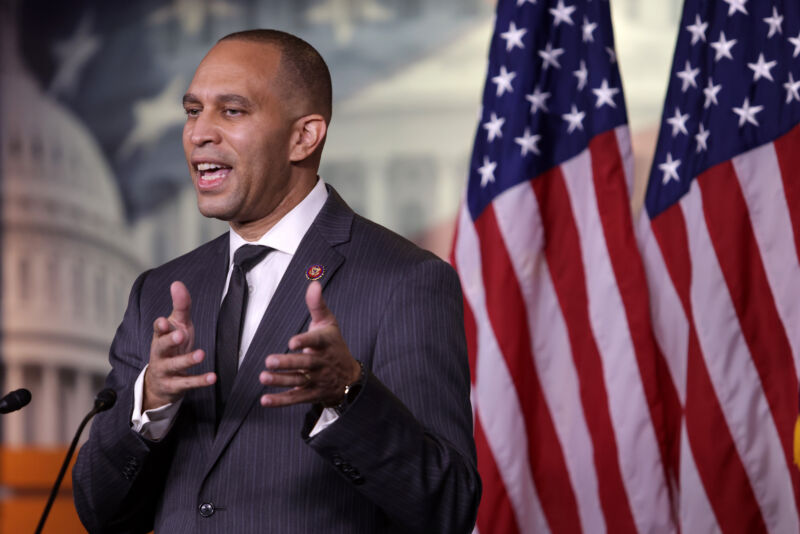
Members of Congress were given just a few hours to read the massive 5,600-page spending bill that passed both legislative chambers on Monday evening. In addition to authorizing $900 billion in COVID relief spending and $1.4 trillion in other spending, the package also included a number of smaller bills that would not have otherwise become law this legislative session.
These included two significant changes to copyright law. One was the Protecting Lawful Streaming Act of 2020, legislation that Sen. Thom Tillis (R-N.C.) introduced two weeks ago. The act makes it a felony, punishable by up to 10 years in prison, to run a pirate streaming service.
The omnibus also included the CASE Act, a proposal to create a new “small claims court” for copyright infringement. Instead of filing a conventional lawsuit, copyright holders will be able to file a complaint with a new agency called the Copyright Claims Board. The CCB will function much like a court, hearing evidence from both sides and then deciding whether to award damages. But it will develop an informal, streamlined process in an effort to keep the costs of litigation down.
I talked to two digital rights advocates—John Bergmayer at Public Knowledge and Katharine Trendacosta from the Electronic Frontier Foundation—who were surprisingly sanguine about the streaming bill. That’s because the legislation is focused on those who operate pirate streaming services, not their users. Another PK lawyer, Meredith Rose, wrote that “we do not see the need for further criminal penalties,” but she acknowledged that the streaming bill was “narrowly tailored and avoids criminalizing users.”
But Bergmayer and Trendacosta had harsher things to say about the CASE Act. Trendacosta described it as “much worse than the felony streaming bill.”
A “small claims court” with high stakes
Details about how the new Copyright Claims Board will work haven’t been decided yet. Instead, the Copyright Office, a branch of the Library of Congress, is supposed to develop those rules over the coming months. The hope is that the CCB will develop informal procedures that ordinary people can navigate without help from an attorney.
But there are limits to how much a copyright case can be simplified. The process will include a discovery phase where each side can demand relevant documents from the other. Some cases will turn on complex legal issues like the doctrine of fair use. Defendants who want to raise a fair-use defense might not be able to do it without help from a lawyer.
And while the CCB has been billed as a “small claims court,” Trendacosta points out that the sums involved aren’t that small. The maximum penalty in a case is $15,000 per infringement and $30,000 per plaintiff. That’s large enough to impose a substantial hardship on many Americans.
Moreover, low costs can be a double-edged sword. Lower costs might make it feasible for more defendants to defend themselves without formal representation, deterring frivolous claims. But things could also go in the other direction: lowering the cost of bringing complaints could lower the barrier to entry for copyright trolling.
So a lot depends on exactly how the CCB operates. The board will consist of three Copyright Claims officers who will each serve for six years. The officers will have plenty of discretion over what types of cases they hear. If they aggressively vet cases on the front end to prevent abuse of the process, the CCB could wind up being a genuine improvement for users as well as copyright holders.
But groups like EFF and PK worry that the CCB will become a rubber stamp for copyright trolls.
The law does have some provisions designed to prevent abuse of the new process. If someone pursues a case with “a harassing or other improper purpose” or “without a reasonable basis in law or fact,” the CCB can award attorney’s fees to the other party. If someone abuses the CCB process more than once, they can be barred from using the process for a year.
https://arstechnica.com/?p=1731441

